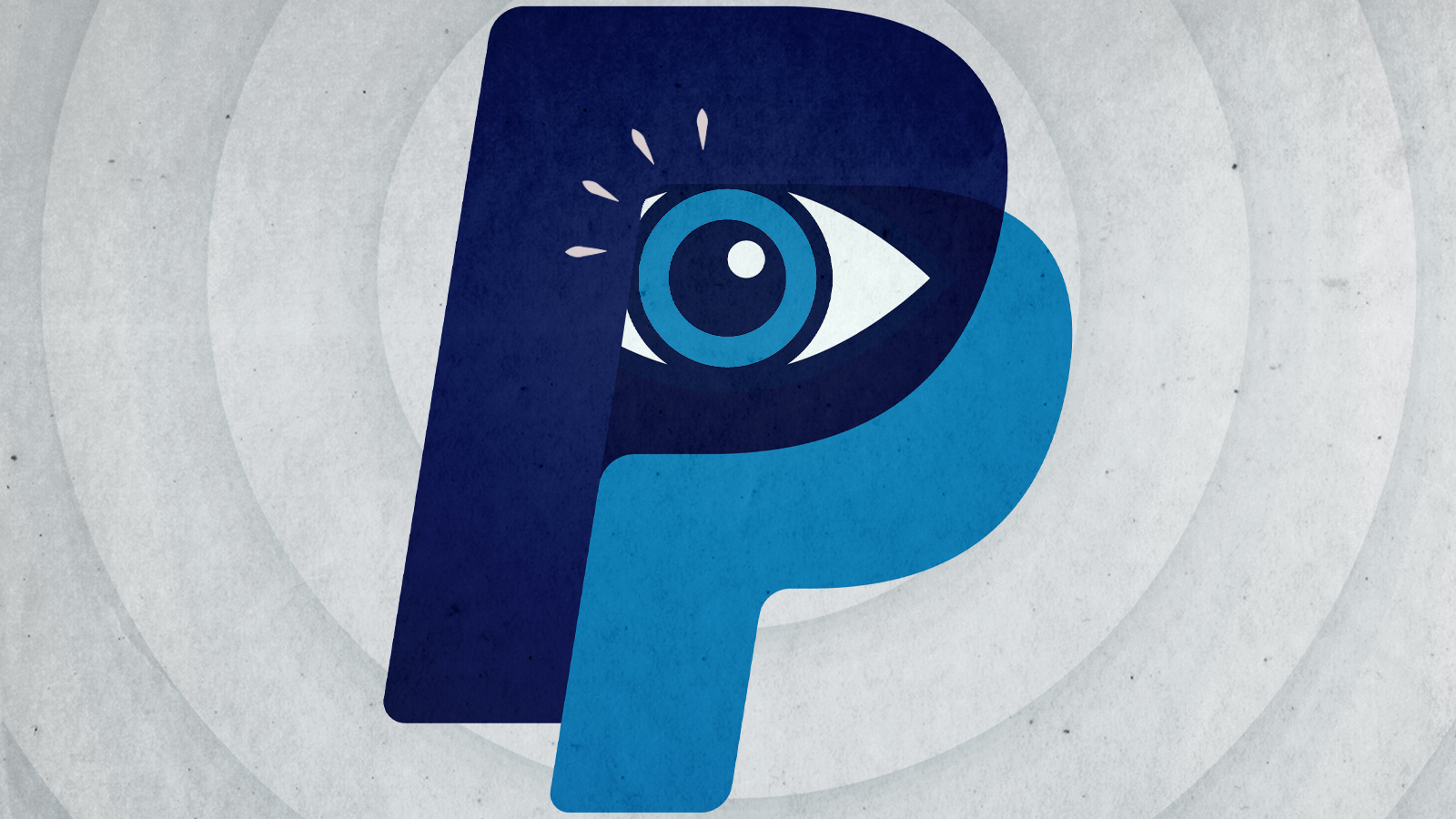PayPal recklessly forays into regulating speech


A free daily email with the biggest news stories of the day – and the best features from TheWeek.com
You are now subscribed
Your newsletter sign-up was successful
Tech giant PayPal announced Monday a new initiative against radical politics online. Working with the Anti-Defamation League, the League of United Latin American Citizens, and other groups, PayPal will track and shut down financial networks that "that support extremist and hate movements."
The language of the press release is ambiguous, but suggests that PayPal will go beyond earlier efforts to avoid hosting illegal activities. The targets are not only criminals or paramilitaries but individuals or organizations "profiting from all forms of hate and bigotry against any community."
Online racists are not an appealing constituency, but this arrangement is a bad precedent. It's not only a question of what users will be able to post in public, as with social media platforms. PayPal threatens to limit the ability of individuals or organizations that it deems intolerable to engage in private financial transactions.
The Week
Escape your echo chamber. Get the facts behind the news, plus analysis from multiple perspectives.

Sign up for The Week's Free Newsletters
From our morning news briefing to a weekly Good News Newsletter, get the best of The Week delivered directly to your inbox.
From our morning news briefing to a weekly Good News Newsletter, get the best of The Week delivered directly to your inbox.
Even worse, the judgment about what language or opinions stand beyond the limits of toleration will be outsourced to activists with their own agendas. Even if they start out narrowly-tailored, it's likely that triggers for investigations and bans will extend from threats, harassment, and conspiracy to the latest left-wing shibboleths. The list of topics on the ADL Center for Extremism website — including bullying in educational settings, "anti-transgender rhetoric", and "women's equity" — makes it clear that the group's definition of extremism is not limited to terrorism, organized crime, or other direct threats to constitutional government.
The PayPal initiative justifies fears that the leading platforms are hostile to the spirit, if not the letter, of the First Amendment. The goal is to make it as difficult as possible to organize around offensive but legal ideas. The financial and tech industries have a legitimate interest in disentangling themselves from crime and political violence. But they and their non-profit allies are unreliable guardians of civic discourse.
A free daily email with the biggest news stories of the day – and the best features from TheWeek.com
Samuel Goldman is a national correspondent at TheWeek.com. He is also an associate professor of political science at George Washington University, where he is executive director of the John L. Loeb, Jr. Institute for Religious Freedom and director of the Politics & Values Program. He received his Ph.D. from Harvard and was a postdoctoral fellow in Religion, Ethics, & Politics at Princeton University. His books include God's Country: Christian Zionism in America (University of Pennsylvania Press, 2018) and After Nationalism (University of Pennsylvania Press, 2021). In addition to academic research, Goldman's writing has appeared in The New York Times, The Wall Street Journal, and many other publications.
-
 6 of the world’s most accessible destinations
6 of the world’s most accessible destinationsThe Week Recommends Experience all of Berlin, Singapore and Sydney
-
 How the FCC’s ‘equal time’ rule works
How the FCC’s ‘equal time’ rule worksIn the Spotlight The law is at the heart of the Colbert-CBS conflict
-
 What is the endgame in the DHS shutdown?
What is the endgame in the DHS shutdown?Today’s Big Question Democrats want to rein in ICE’s immigration crackdown
-
 Epstein files topple law CEO, roil UK government
Epstein files topple law CEO, roil UK governmentSpeed Read Peter Mandelson, Britain’s former ambassador to the US, is caught up in the scandal
-
 Iran and US prepare to meet after skirmishes
Iran and US prepare to meet after skirmishesSpeed Read The incident comes amid heightened tensions in the Middle East
-
 Israel retrieves final hostage’s body from Gaza
Israel retrieves final hostage’s body from GazaSpeed Read The 24-year-old police officer was killed during the initial Hamas attack
-
 China’s Xi targets top general in growing purge
China’s Xi targets top general in growing purgeSpeed Read Zhang Youxia is being investigated over ‘grave violations’ of the law
-
 Panama and Canada are negotiating over a crucial copper mine
Panama and Canada are negotiating over a crucial copper mineIn the Spotlight Panama is set to make a final decision on the mine this summer
-
 Why Greenland’s natural resources are nearly impossible to mine
Why Greenland’s natural resources are nearly impossible to mineThe Explainer The country’s natural landscape makes the task extremely difficult
-
 Iran cuts internet as protests escalate
Iran cuts internet as protests escalateSpeed Reada Government buildings across the country have been set on fire
-
 US nabs ‘shadow’ tanker claimed by Russia
US nabs ‘shadow’ tanker claimed by RussiaSpeed Read The ship was one of two vessels seized by the US military
